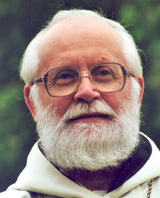 |
|
||
|
|
|||
February 7, 2016 – 5th Sunday "C"
Is 6: 1-2a, 3-8; 1
Cor15, 1-22; L 5, 1-11
Monastery of Illah,
Delta State, Nigeria
H O
M I L Y
The
Bible ‑‑ the Old Testament as well as the New ‑‑ is the history of living witnesses who gave witness to what they
had seen and heard, and most of all to their own spiritual experience. It was the vocation of the whole people of
Israel, called to witness to the face of the nations, that Yahweh alone was
God. Within the people of Israel, it was the vocation of Moses, of David and
especially of all the great prophets called to witness to what they had
experienced of the living God in their own lives, and in the life of the whole
people.
When
they are confronted with such a mission, each one
reacts differently, according to his own character. Isaiah, as we heard a few minutes ago,
volunteers, at least after his lips were purified with
the burning coal. "Send me", he says. Jeremiah has objections: "I am only a child..." Moses need signs that will be proofs to the
people that he has really been sent by Yahweh, and he
tries to refuse the mission. Finally all of them obey and accept the mission, even Jonah,
although he makes a long detour through the belly of the whale...
Jesus
was the faithful witness, who witnessed to mankind of what he had seen and
heard from the Father, and who witnessed to the love the Father had for him and
for us. And when he gave their mission to the Twelve, he simply established them as
witnesses of what they had seen and heard.
In
today's gospel, Jesus speaks to the crowd, and because the crowd is pressing
him, he gets onto a boat to address the whole crowd from some distance. It is after this that he calls Peter to be
also his witness. On the day of
Pentecost, Peter, talking to the crowd will say: "That Jesus... we are his "witnesses". And when Paul
describes his own mission he says: "I have received from the Lord the
ministry of giving witness to the Good News."
All
the ministries that developed in the Church throughout the centuries, in answer
to various and changing needs, were in one way or another
ministries of the Word.
At first there were only the Twelve, who acted as
witnesses to the Resurrection and animators of brotherly love among the
faithful of Christ. Then, when some
tensions appeared between the Hellenists and Hebrews, the deacons were instituted. And they soon became first of all ministers of the word.
After a first moment of persecution, the deacons disperse and one of them, Philip,
goes to preach the Good News to Samaria, and later on to Antioch. Then the Apostles sent Peter and John to Samaria,
and Barnabas to Antioch. We know the
rest of the history, through the Acts of the Apostles : the call and the mission of Paul, the gradual organization of the local
Churches, with their priests (presbyteroi) and
bishops (episcopoi) who are all, first of all,
ministers of the Word of God.
Then,
another ministry of the word develops: monastic
life. Men and women withdraw to the
desert to listen to the Word of God. Then
disciples comes to them, in the desert by hundreds and thousands, asking them
for a word : "Abba, give me a word"
Every
time new forms of religious life develop in the Chuch,
we witness a liberation of the word. Examples : Francis of Assisi and Dominic.
Today,
the World needs witnesses, who can give an account of their hope, who can
proclaim by their words and their lives, or simply by
their lives the message of the Gospel: the eternal message of love, of hope, of
joy. People who can witness to a personal encounter with God. People who can cry out with joy and
excitement. I have seen the living God and I live.
This is our call.
|
|
||
|
|
|||
